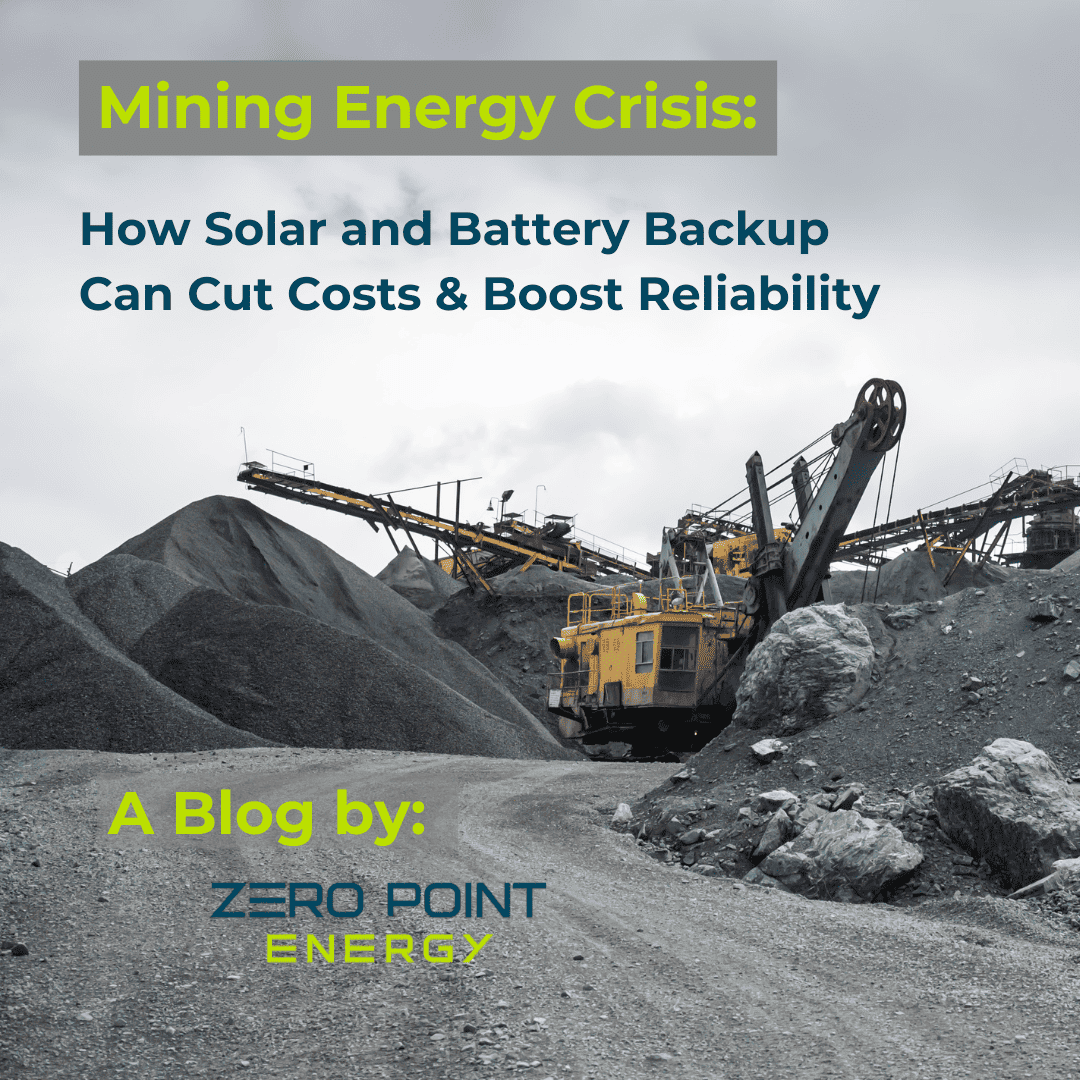
As South Africa grapples with the challenges of energy reliability and sustainability, businesses across the country are increasingly turning to renewable energy solutions to secure their power needs. In this blog article, we explore the compelling prospects of solar and backup solutions for commercial and industrial use, shedding light on the numerous benefits they offer for businesses and the environment.
Harnessing Solar Energy:
South Africa is blessed with abundant sunlight, making it an ideal location for harnessing solar energy. Solar power is a sustainable and clean energy source that can significantly reduce businesses’ reliance on traditional grid electricity. Here’s why solar energy is an attractive choice for businesses:
- Cost Savings: Solar power systems offer substantial cost savings over the long term by being able to reduce business electricity bills by up to 70%, and generating revenue through excess energy sold back to the
- Environmental Benefits: Solar power is a green energy source that reduces a company’s carbon footprint, contributing to a cleaner and more sustainable South Africa.
- Energy Independence: With solar panels coupled with backup power solutions, businesses can become more self-reliant, ensuring a stable power supply even during grid outages or load shedding
Backup Power Solutions for Reliability:
Solar power systems, while a great energy source during the day, need backup power solutions to ensure round-the-clock power availability. This is where backup solutions come into play:
- Battery Storage: Battery storage systems are essential for storing excess solar energy generated during the day and using it at night or during grid They provide uninterrupted power, enhancing business operations.
- Generators: Diesel or natural gas generators can serve as reliable backup power sources when solar power is They ensure continuous electricity supply during extended periods of low sunlight.
- Hybrid Systems: Combining solar power with backup solutions, such as batteries and generators with smart control systems, creates a robust energy infrastructure
that guarantees uninterrupted power and optimal use of energy sources depending on priority and availability
Visit our projects page to view various installations where we’ve combined both solar and backup solutions to work with existing generators ensuring uninterrupted electricity supply and seamless power transition.
Sustainability and Corporate Responsibility:
Adopting solar and backup solutions is not only a pragmatic business move but also a step towards corporate social responsibility and sustainability. Many South African businesses are taking the lead in reducing their carbon footprint and demonstrating their commitment to a cleaner and more sustainable future.
Incentives and Government Support:
The South African government has implemented various incentives and support mechanisms to encourage the adoption of renewable energy, including solar power. These include tax benefits, rebates, and financing options that make solar and backup solutions more affordable for businesses. This includes the SARS Section 12B tax allowance where businesses can get up to 125% tax rebates on their alternate energy investment.
The adoption of solar and backup power solutions for commercial and industrial use in South Africa is a smart and responsible choice. These systems not only offer financial benefits and enhanced energy reliability but also contribute to a greener and more sustainable future for the country.
As an industry leader in the renewable energy sector, Zero Point Energy is committed to helping businesses across South Africa embrace these technologies. We can also assist our clients to finance their alternate energy investments, thus offering a seamless solution. View the companies we’ve worked with on our About Us page.
Contact us today to explore how solar and backup solutions can empower your business, reduce your energy costs, and make a positive impact on the environment. Together, we can create a brighter and more sustainable future for South Africa.



